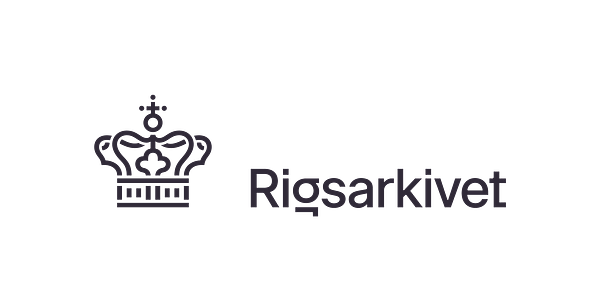Pressemeddelelse -
Historical big data maps Denmark's population back to 1787
Historians and archives are developing new paths to knowledge about the past with the Link-Lives project. Information from censuses, church records and other historical sources is to be linked so that the research potential is enhanced. This can lead to, for example, new knowledge about disease patterns across generations. Link-Lives is a collaboration between the University of Copenhagen, the National Archives, Copenhagen City Archives and the company Ancestry. The project has received a total of DKK 33 million from the Innovation Fund and the Carlsberg Foundation, respectively.
The quantity, quality and continuity of information about individuals in the Danish archives are only matched in a few places in the world. But if researchers want to investigate how, for example, diseases have developed in families through history, then they are limited by the fact that the Danish Civil Registration System (CPR) was first introduced in 1968. Only then was it possible to automatically link personal information about each individual citizen. Therefore, today it is very labor-intensive to make use of all the valuable information that precedes the CPR system for research. The Link-Lives project is now breaking through this barrier. The objective is to gather and link all information about the Danish population from 1787 until the CPR registration system was introduced in 1968. In this way, unique and research-potent life-course data is created.
Anne-Sofie Jensen, Director General of the National Archives says: "Link-Lives will bring historical population data into play to an unprecedented extent. It will extend the scope of Danish population history through crowdsourcing and machine-learning-based data integration, enabling researchers to look back centuries back in time. They will be able to link information from many sources and find patterns and connections in very large amounts of data. For health researchers, this means, for example, that they can research both hereditary and environmentally-influenced disease occurrences across generations and gain new insight into long-term trends. ”
Danish archives become world leaders
However, it is far from only health researchers who can benefit from Link-Lives. The dataset will facilitate studies in historical demography and sociology that have not been possible before. For example, social scientists will be able to investigate the significance of generations of health insurance membership, schooling or participation in associations for people's lives.
For genealogists, Link-Lives will also be a quantum leap forward. The chair of Danish Genealogy, Kirsten Sanders, says: “This project will continue to consolidate the close relationship that exists between voluntary genealogical competencies and medical competencies, just as genealogy research in Denmark generally will benefit from the research achievements that will be the resultsof the project ”.
Professor Anne Løkke from the University of Copenhagen is working with Link-Lives and is convinced that the project will be very important: "The collaboration will make Danish archives the world leader on historical life-course data over many generations and on a large scale," she says.
Volunteer efforts have paved the way
There are many years of work ahead to realize Link-Lives, and this applies not least to the archives' collaboration with volunteer genealogists. For more than 25 years, the volunteers have transcribed the sources from Denmark's history for digital use. This means that the National Archives today has information on millions of people, particularly in the form of transcribed census data and church records. This is information that will be used to construct the backbone of Link-Lives. “Of course we are deeply grateful for that. It is genuine citizen science”, says Director General Anne-Sofie Jensen, who also thanks the two foundations that support the project. “We are extremely pleased that the Innovation Fund Denmark and the Carlsberg Foundation have made it possible for us to be a key player in such a large and valuable project as Link-Lives. There is no doubt that it will create the foundation for important results for Danish research. ”
Further information Contacts
- Allan Vestergaard, Head of Area, Danish National Archives, phone: +45 41 71 72 49
- Ole Magnus Mølbak Andersen, Deputy Director, Danish National Archives, phone: +45 41 71 73 11
Factbox
Link-Lives will be implemented over the next five years (2019-2024). The project is a collaboration between the Danish National Archives, the University of Copenhagen, Copenhagen City Archives and the company Ancestry. Umeå, Tromsø, Edinburgh and Radboud universities are also contributing to the project.
Grants
The Innovation Fund grants DKK 11 million to Link-Lives (2019-2022). Barbara Revuelta-Eugercios (The National Archives) is the project manager. The fund funds the technology-heavy part of the project, i.e. software development, linking through machine learning, establishing the uncomplicated links, webpage and pre-development of the beta version of the family tree donation platform, through which information from censuses, church records and other historical sources can be linked. Read more here: https://innovationsfonden.dk/da/nyheder-presse-og-job/historiske-data-kan-give-ny-indsigt-i-arvelige-sygdomme
The Carlsberg Foundation grants DKK 22 million. to Link-Lives (2019-2024) to Anne Løkke (University of Copenhagen). The funds are to be used for the time-consuming historical basic research needed to take full advantage of machine learning, to transcribe two key censuses from the twentieth century, and to involve researcher recruitment in the project to ensure that expertise in data analysis-based history research is not lacking in the next generation of historians in Denmark.
Read more here: https://www.carlsbergfondet.dk/da/Nyheder/Nyt-fra-fondet/Nyheder/CF-uddeler-200-millioner-kroner-til-nye-Semper-Ardens-projekter)
Emner
- Medier, kommunikation
Rigsarkivet bygger bro mellem fortid, nutid og fremtid. Her findes de originale kilder til det danske samfunds udvikling. Som arkiv sikrer vi den skriftlige og digitale kulturarv nu og i fremtiden, så kommende generationer kan skrive og forstå deres historie. Som kultur- og forskningsinstitution formidler vi Danmarks historie og bidrager med ny forskning og viden. Som informationsformidler er vi katalysator for samfundsdebatten.
